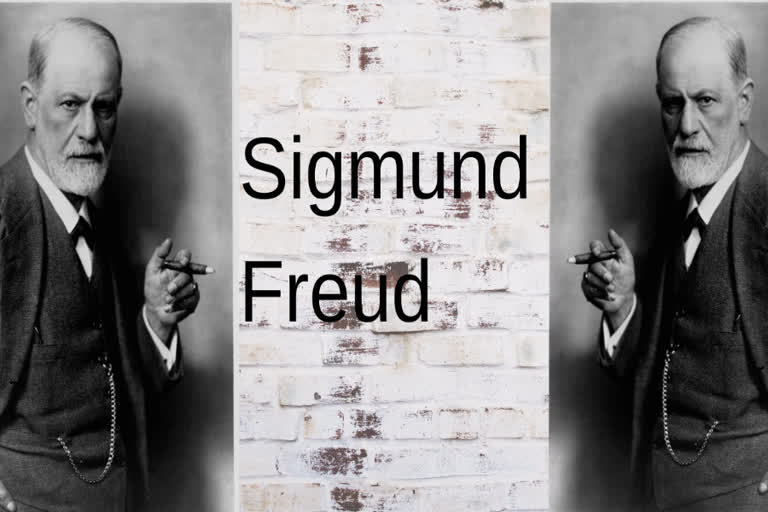Hyderabad: Founder of Psychoanalysis, Sigmund Freud died of a lethal dose of morphine administered at his request by his friend and physician Max Schur. Freud had been suffering agonizing pain caused by an inoperable cancerous tumor in his eye socket and cheek. Cancer had begun as a lesion in his mouth that he discovered in 1923.
Most Famous Book of Sigmund Freud are:-
- 1895: Studies on Hysteria
- 1900: The Interpretation of Dreams
- 1901: The Psychopathology of Everyday Life
- 1905: Three Essays on the Theory of Sexuality
- 1905: Jokes and Their Relation to the Unconscious
- 1913: Totem and Taboo
- 1914: On Narcissism
- 1917: Introduction to Psychoanalysis
Sigmund Freud is known for his creation in the field of psychoanalysis. His erotic view on development (psychosexual development) and human unconsciousness is very unique.
Sigmund Freud's psychoanalytic theory of personality argues that human behavior is the result of the interactions among three component parts of the mind:
- the id
- ego
- superego.
After graduating in 1873 from secondary school in Vienna, Sigmund Freud entered the medical school of the University of Vienna, concentrating on physiology and neurology. He obtained a medical degree in 1881. From 1882–85, he trained as a clinical assistant at the General Hospital in Vienna and studied (1885–86) in Paris under neurologist Jean-Martin Charcot.
Life Story of Sigmund FreudFreud’s father, Jakob, was a Jewish wool merchant who had been married once before he wed the boy’s mother, Amalie Nathansohn. The father, 40 years old at Freud’s birth, seems to have been a relatively remote and authoritarian figure, while his mother appears to have been more nurturant and emotionally available.
Although Freud had two older half-brothers, his strongest if also most ambivalent attachment seems to have been to a nephew, John, one year his senior, who provided the model of an intimate friend and hated rival that Freud reproduced often at later stages of his life.
In 1859 the Freud family was compelled for economic reasons to move to Leipzig and then a year after to Vienna, where Freud remained until the Nazi annexation of Austria.
In 1873, Freud graduated from the Sperl Gymnasium and, apparently got inspired by a public reading of an essay by Goethe on nature, turned to medicine as a career.
